Power Plays: What can a lignite village teach us about Just Transition?
In Mavropigi (Western Macedonia), the expropriated inhabitants count on it to be compensated.
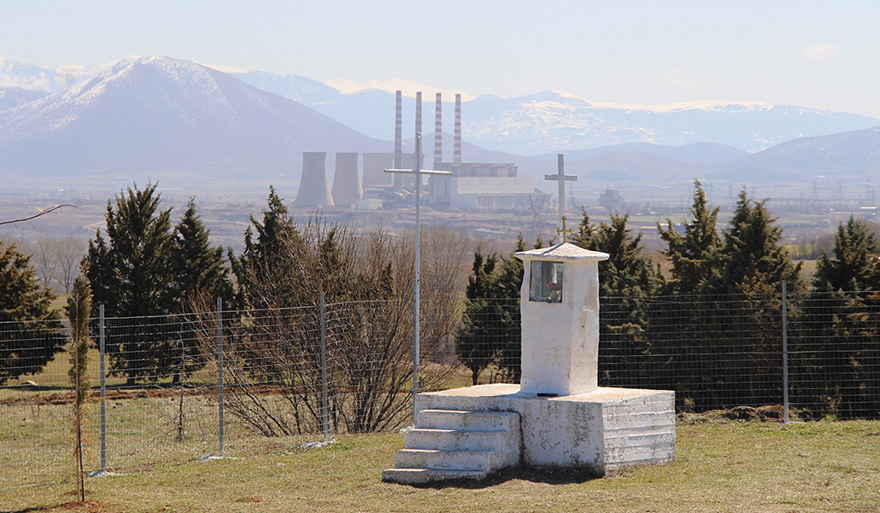
Mavropigi (Greece)
Vangelis Karageorgiou drove with equal confidence in the highway between Ptolemaida and Kozani and the dirt-roads of his village, Mavropigi. Being the village’s president meant that he was accustomed to conveying his community’s tales of hardship in a persuasive and collected manner. He did, however, tense up once he stepped out of the car. He walked a couple of meters to the right and stood on a plot of land made up of red dirt piles, rusted metal rods and cement blocks. He couldn’t tell if these were the foundations of his house or some neighbour’s, but he estimated that this was the location where his house used to stand until three years ago.
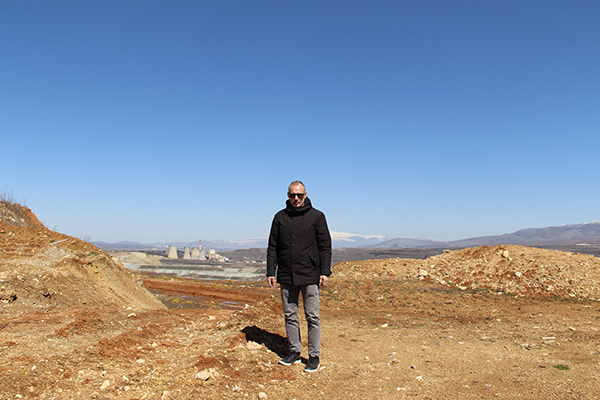
In his background, two of Greece’s biggest open lignite mines, owned, dug and operated by Greece’s Public Power Corporation (PPC) stretched as far and as deep as the eye can see. Eleni Kotzaitsi, a retired teacher from Mavropigi aptly described them “like disembowelled beasts, an impression of a lunar landscape, of craters”.
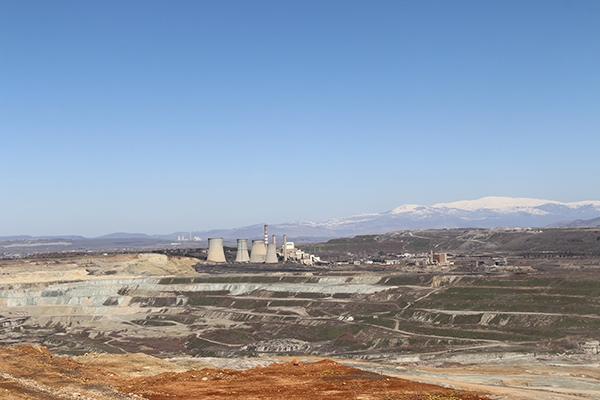
The connection between foreground and background are those of cause and effect: the village was eradicated due to the mine’s operation. Lignite has traditionally been Greece’s main electric power source for many decades and Western Macedonia where Mavropigi is located, the region where most of it is buried. Since 1957, coal has been the region’s most valuable treasure, appointing the PPC as the major employer, both directly and indirectly, and accounting for driving its GRDP higher. Coincidentally, as the country’s energy needs grew bigger, the excavators became hungrier and the village, which existed in this location since 6,500 B.C., in danger.
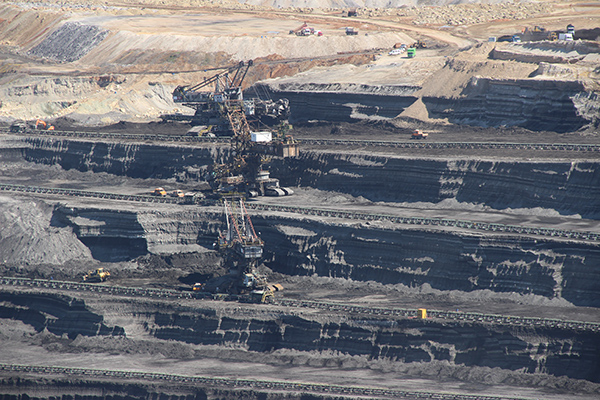
On October 5, 2001, after a series of legal battles between the village and the PPC on its environmental terms as well as a violent clash with the police, the mine that would swallow the forest of Mavropigi was opened. Tasos Emmanouil, president of the association of Mavropigi’s afflicted residents, recalls that “the whole village knew that this was happening from the nearby hospital, because the police had asked them to put their ambulances on stand-by”.
Tasos, then, swiped on a couple of photos on his phone. They were depicting a series of excavated graves, from the cemetery of Mavropigi: “We were forced to exhume our loved ones, many times against our will. Bailiffs would hand out papers indicating the dates that the PPC’s subcontracted funeral home would exhume our relatives, in order to bury them in Ptolemaida’s cemetery. Alive or dead, they showed mercy to none.”.
After the forest, Mavropigi’s eminent domain was decided in 2011, when a dangerous crevasse appeared in its soil and in 2012 the county court decided on the compensation rates to be given to the residents for their properties. By the end of 2013, all 200 families had been compensated and started searching for their new homes.
Despite the fact that a relocation sight had been appointed, the local authorities hadn’t provided for basic infrastructure, making it inhabitable. This forced the people of Mavropigi, under the threat of the crevasse and Greece’s very unstable financial situation of the time to invest quickly in Ptolemaida’s house market that saw this as an opportunity for profit.
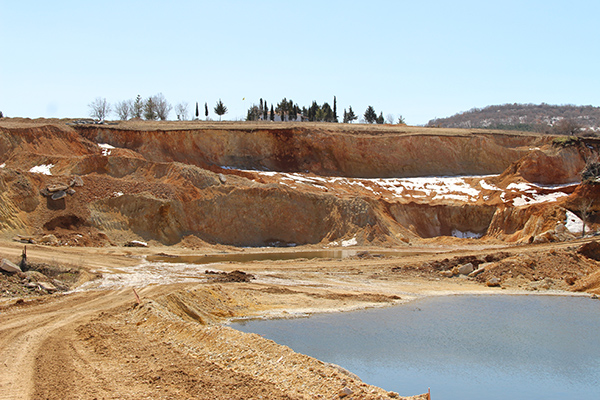
The people of Mavropigi, especially the elderly, found it very difficult to adapt to the urban environment and its lifestyle. Zoi Kozidou, ex-resident of Mavropigi, knew that in order to keep her parents from withering away in the “cage”, as they felt apartments were, she had to move in with them for some time. What she didn’t know was that she would end up owing 42% of the money she received to buy this apartment, more than a year after she had received them.
On December 2014, two years after the county court’s decision, the appeal court cut the compensation rates by 58% on land parcels and 42% on property, a great total that reaches 35 million euros, lining up completely with the PPC’s petition of the rates, as Tasos mentions. This means that if the PPC was to claim this money, the residents would lose their new homes too. “Our hands are tied, we are in constant fear that they’ll take our homes. This is their ‘thank you’ for all the sacrifices Mavropigi has made”, Eleni adds with a bitter smile.
The PPC’s Lignite Center in Western Macedonia is a short drive from Mavropigi and the taxi driver, who is also from Mavropigi, is very eager to know what its director since 2020, Antonis Nikou, has to say about the village. Nikou’s knowledge on the topic runs deeper than his professional tone originally indicated: “You see, I was born in that village, my parents’ graves were there. Like all the residents I owe to the PPC, myself.” He regained his serious manner: “You have to know how to balance these two different positions.”
He calls the situation “pending”, assures that “to this day PPC hasn’t made any moves towards claiming the amount due based on the court’s verdict” but articulates that “the owed amounts are officially recorded and can’t be written off”. The residents, as Vangelis explains, believe there is a way-out to this dispute: “We believe political solution exists. With Yorgos Sotirelis, our lawyer in Athens, we have drafted an amendment that could have been used by any government since 2014 and solve the issue with a minister’s signature.”
Now they feel their last chance lies in Greece’s Just Transition Development Plan (JTDP). In September 2019, the country’s current Prime Minister, Kyriakos Mitsotakis, announced in the UN’s Secretary General’s Special Summit on Climate Action that Greece will “close all lignite plants the latest by 2028”. Since then, the government has taken serious action on this announcement and the lignite phase-out will be funded by the EU’s Just Transition Mechanism. The plan, however, finds many, including the people of Mavropigi, sceptical and remains to this day “pretty vague”, as Nikos Mantzaris, senior policy analyst and co-founder of Green Tank points out.
“There have been some political conversations, that a solution would be given through the JTDP, but we haven’t seen the word Mavropigi in any of the versions released until today”, member of Mavropigi’s council, Yorgos Deliyiorgis claims. Pavlos Angelidis, the youngest member of the council adds that when the local council had a meeting in the Ministry of Environment and Energy in 2019 “they had pledged to help us come to a solution and told us to be patient for a few months to legislate it and pass it smoothly in the JTDP”. This could make sense because the Minister is a member of the government committee of the JTDP. Antonis Nikou entertained this potential, too: “If the Ministry wants to include the issue of these compensations, it could be a political decision and it can be executed.”
Nikos Mantzaris is more hesitant: “I can’t imagine how this situation can be solved. But I can’t imagine these people losing their money either. I can tell you, by common thought, this isn’t just”. He also ruled out any potential that the Plan, which has acquired 1,9 billion euros from the EU’s Just Transition Fund and Recovery Fund, could just pay the money back: “These funds finance projects.” An official of the Steering Committee of the JTDP that we have interviewed shares a similar view. “This is a dispute between the PPC and the relocated residents. It’s not a matter of the Plan", he said, remaining confident “but realistic” about the way the plan is rolling out and expecting that by 2024 locals will have seen a difference in their regions with mine reconstructions, solar panel parks, energy communities, motives for big investments, support of entrepreneurship, tourism, innovative agriculture and digital transition amongst others. According to this official, the locals’ “distrust in any big change” is his biggest obstacle.
Nikos Mantzaris suggests that they may have a reason for this: “No one truly asked the locals about their land. There was little regard for their involvement” as there was for NGOs’ and unions’ in the top-down governance of the plan. He indicates that if the locals don’t believe in this, even the best plan can go to waste. “The people don’t trust this, because during this huge transition period, there aren’t enough funds, the emergency solutions aren’t enough to withhold the wave of unemployment”, which has always been high in the region. Pavlos is a victim of this. He used to work as a contractor for the PPC, but with the steady decline of lignite production, job offers became fewer. Thus, only a year after he built his new house in Ptolemaida with the compensation money, he had to lock it up and migrate to Athens.
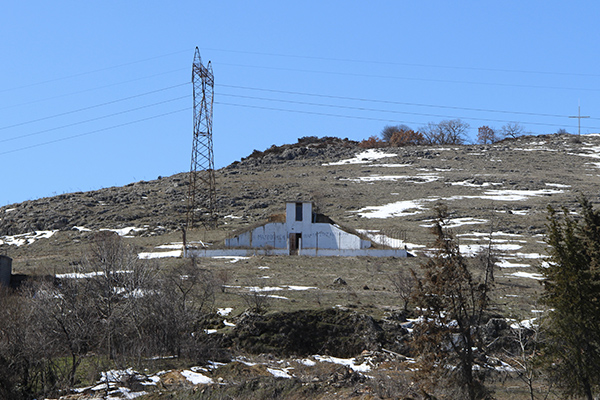
Tasos is unswerving: “Instead of demanding jobs, we have to demand to keep our houses. This is the reward for everything, this is the just of this transition. The term just, is a mere euphemism here.” The residents, however, haven’t given up. Since 2019, when Greece’s High Court validated the appeal court’s decision the residents appealed to European Union’s Court of Justice. Since then, they are patiently waiting for a trial date and the true meaning of the term.
 This article was produced as part of the Union Is Strength competition, organised by Slate.fr with the financial support of the European Union. The article reflects the views of the author and the European Commission cannot be held responsible for its content or use.
This article was produced as part of the Union Is Strength competition, organised by Slate.fr with the financial support of the European Union. The article reflects the views of the author and the European Commission cannot be held responsible for its content or use.